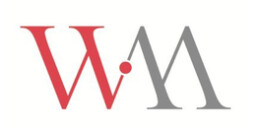The World In A Week - Knowing the Price of Everything, but the Value of Nothing…
The last week in markets was quite typical of the environment we have observed for the year to date. There was not an awful lot of movement at the headline level, but quite a lot of volatility and dispersion of returns below the surface, which made precise positioning critical. Headline global equities, as measured by the MSCI All Country World Index (ACWI), were down -0.3% in GBP terms, while most forms of Fixed Income sold off as interest rates continue to rise in the US as market participants price in a robust economic recovery.
What we found to be particularly of note last week was the continued outperformance of “Value” equities, in excess of their “Growth” counterparts. As we approach the end of the first quarter of 2021, it is interesting to note how different this market has been versus what we observed in 2020. For the year to date, MSCI ACWI Value is up +7.0% in GBP terms vs a return of -1.7% for MSCI ACWI Growth.
On a stock level, names which exploded upwards in a pique of exuberance in 2020 have struggled this year with Tesla down -5.7%. ETFs such as the wildly popular ARK Innovation ETF are down -2.6%, while in the UK popular Funds such as the Baillie Gifford Global Discovery Fund are down -3.6%. This contrasts with a YTD market return (MSCI ACWI in GBP) of +2.7% and a return of +13.7% for our Value managers (Pzena Global Value in this instance).
What is really fascinating is the fact that Volkswagen shares have returned +78.5% for the year to date, driven by their increasing dominance in the electric car market. This return contrasts with Tesla’s negative performance year to date and is emblematic of the fact that VW is now outselling Mr Musk in electric vehicles in Europe. Volkswagen is valued at 7x the earnings it is expected to generate over the next 12 months, vs Tesla on 146x. This is really interesting because it illustrates that investors do not have to follow the herd and pay stonking prices to gain access to interesting investment themes such as the electric vehicle revolution. Kawasaki Heavy Industries is another interesting name held by our Nikko Japan Value Fund, which is in a prime position to take advantage of the opportunity presented by the advent of hydrogen energy but is valued on a price-to-book ratio of less than 1.
On the Fixed Income side, it has been interesting to see our Chinese Government Bond Fund (UBS China Bond) perform positively year to date, as bonds have sold off globally as interest rates rise. UBS is up +0.2% vs -2.7% for the Barclays Global Aggregate Index. Once again this demonstrates the importance of nuanced Active positioning in the current environment.
Any opinions stated are honestly held but are not guaranteed and should not be relied upon.
The information contained in this document is not to be regarded as an offer to buy or sell, or the solicitation of any offer to buy or sell, any investments or products.
The content of this document is for information only. It is advisable that you discuss your personal financial circumstances with a financial adviser before undertaking any investments.
All the data contained in the communication is believed to be reliable but may be inaccurate or incomplete. Unless otherwise specified all information is produced as of 22nd March 2021.
© 2021 Beaufort Investment. All rights reserved.
The World In A Week - Fiscal Injection
Last week saw President Joseph Biden’s $1.9 trillion stimulus package passed by Congress, which has seen the Organisation for Economic Co-operation and Development (OECD) accelerate its global growth expectations to 5.6%. The OECD has also increased its US growth forecast from 3.3% to 6.5%. Americans will expect to see $1,400 paid directly into their bank accounts which should effectively increase consumer spending, keep businesses operational and boost economic activity. Most of the package ($750 billion) will support the continuation of the US vaccination rollout, with $600 billion set aside in the form of said stimulus checks. A further $400 billion will aid financially vulnerable households in the form of unemployment benefits of up to $400 a week and the final $150 billion is set to support smaller businesses with loans and grants. US markets welcomed confirmation of President Biden’s stimulus package with the S&P 500 returning +2.09% in GBP terms last week.
The UK’s gross domestic product is estimated to have fallen by 2.9% in January 2021, with the national lockdown reducing the levels of consumer spending and economic activity considerably. Elsewhere, the Governor of the Bank of England, Andrew Bailey stated that he is confident that inflation would not threaten price stability as consumer spending is expected to pick up significantly as we transition out of the national lockdown. The UK inflation rate rose 0.9% in the 12 months to January 2021, well below the Bank of England’s 2% target rate. Inflation is often measured by the Consumer Price Index (CPI) which measures the price change of a typical basket of consumer goods. This basket of goods has been rightly adjusted to reflect the recent shift in consumer spending habits which has included increased demand for hand-sanitisers and home exercise equipment.
Any opinions stated are honestly held but are not guaranteed and should not be relied upon.
The information contained in this document is not to be regarded as an offer to buy or sell, or the solicitation of any offer to buy or sell, any investments or products.
The content of this document is for information only. It is advisable that you discuss your personal financial circumstances with a financial adviser before undertaking any investments.
All the data contained in the communication is believed to be reliable but may be inaccurate or incomplete. Unless otherwise specified all information is produced as of 15th March 2021.
© 2021 Beaufort Investment. All rights reserved.
Lockdown investing: 10 wealth managers' top calls
CityWire Wealth Manager interviewed 10 wealth managers on their investment decisions since the first COVID-19 lockdown began a year ago.
UK economy shrinks by 3% during lockdown
The UK economy fell by 2.9 per cent in January, according to the Office for National Statistics.
The World In A Week - Carry On, Not Carried Away
We ended last week with a strong employment number for the US Non-Farm Payroll, adding 379,000 jobs, against an expectation of only 200,000. The US Non-Farm Payroll is a monthly statistic showing how many people are employed in the US by manufacturing, construction, and goods companies. It is primarily used as an indicator for the number of jobs added or lost in the economy over a one-month period and is a broad indicator of the US economy’s health.
This boost could reflect an increasingly successful vaccine rollout and easing of restrictions in a number of US states. Texas, for example, has lifted all pandemic restrictions on economic activity, to tackle both the effects of the extreme weather and the fall in the fear of the pandemic. This will be an interesting test case for policymakers to monitor.
The imminent round of stimulus from the Biden administration looks to add further fuel to growth expectations, with a significant part of the proposed $1.9 trillion fiscal stimulus plan likely to be passed in the coming days. With substantial pent-up consumer demand ready to be spent once restrictions are lifted, it is no surprise that growth expectations for the US continue to be revised up.
This all sounds positive. However, we have also seen an increase in government bond yields over the past few weeks, as expectations for earlier interest rate hikes are priced. A strengthening economy could mean the accommodative monetary conditions are tightened sooner than expected. It was fortuitous then that the Chair of the Federal Reserve was speaking last week. Jerome Powell’s remarks said very little that was new and gave no indication of easing their monetary policy programme early. Unemployment, although reducing, is far from their full employment target and bond markets are not being disorderly.
It would seem that as we near the end of the COVID-19 tunnel, we must steel ourselves against the conflicting indicators and trust in robust and appropriately diversified investments. The budget delivered by Chancellor Sunak shows that a long-term view is needed to navigate out of this crisis, with his ‘spend now, tax later’ roadmap.
Any opinions stated are honestly held but are not guaranteed and should not be relied upon.
The information contained in this document is not to be regarded as an offer to buy or sell, or the solicitation of any offer to buy or sell, any investments or products.
The content of this document is for information only. It is advisable that you discuss your personal financial circumstances with a financial adviser before undertaking any investments.
All the data contained in the communication is believed to be reliable but may be inaccurate or incomplete. Unless otherwise specified all information is produced as of 8th March 2021.
© 2021 Beaufort Investment. All rights reserved.
The World In A Week - LatAm Shenanigans
February was generally a positive month for equity markets, but last week turned out to be quite a bumpy ride, particularly in the US, and notably within the technology sector. Albeit from low levels, we have seen a pick-up in government bond yields, with the expectation that central bank policy decisions will ultimately lead to inflation. The market has extrapolated that this will need to be countered with interest rate rises. With valuations on many technology darlings having become stressed, the market is now beginning to worry that rates and inflation could damage future growth and start taking flight into other areas of the market.
Outside of technology, stay at home themes have clearly been massive beneficiaries of the pandemic since last March, but last week saw a reversal of their fortunes with Working from Home and Stay at Home themed stocks down -8.5% and -8% respectively (source: Morgan Stanley), while more cyclical parts of the market sat comfortably in positive territory. Are we starting to see the first signs of the market leaving behind COVID-19 winners? If we look at the macro backdrop this is looking fairly robust and supported by fiscal and monetary policy. With the move up in yields, could this potentially be supportive of a shift in market sentiment? Higher rates have always been a risk to contend with but only recently have come to the forefront of investors’ minds, as the speed of the move has been sharp and fast. Investor positioning towards technology and momentum remains high, so it is something to keep a close eye on. As ever, all focus will be on the Fed and the tone of language of how they propose to manage these choppy waters.
As investors, we look for good opportunities at the right price, trying to ascertain what might be the turning point for an asset class that has previously been unloved and out of favour. As an Investment Committee, we have recently increased our allocation to UK equities as the headwinds from Brexit seem to have been removed and appear to be well-positioned in terms of vaccinating against the COVID-19 virus and potentially returning to normal. An asset class that is cheap relative to history and its peers. Sometimes, however, an asset class can be cheap and remain cheap for a reason. If we look at Latin America and Brazil as an example, these are markets that are notoriously volatile and not for the faint- hearted, which has been illustrated again over the last few days. When Bolsonaro took over the Presidency in January 2019, this was viewed as very market-friendly, and the market reacted accordingly, but last week he ousted the CEO of Petrobras and put in charge the head of the military. Truckers have been protesting about the rising cost of fuel and, with elections coming up next year, Bolsonaro does not want anything to upset his chance of re-election. This move is designed to put a control on the company and the oil price. Unsurprisingly, the Petrobras share price took a nosedive. Whilst we do not have any material exposure to the region, it is relevant in the context that politics can play an unfortunately large part on sentiment and impact markets, as witnessed by the fallout of the Brexit vote of June 2016. Watching out for opportunities and threats will always be the name of the game.
Any opinions stated are honestly held but are not guaranteed and should not be relied upon.
The information contained in this document is not to be regarded as an offer to buy or sell, or the solicitation of any offer to buy or sell, any investments or products.
The content of this document is for information only. It is advisable that you discuss your personal financial circumstances with a financial adviser before undertaking any investments.
All the data contained in the communication is believed to be reliable but may be inaccurate or incomplete. Unless otherwise specified all information is produced as of 1st March 2021.
© 2021 Beaufort Investment. All rights reserved.
Eight wealth managers on their top China funds
Wealth Manager asked eight wealth managers about their top China funds to commemorate the Chinese Year of the Ox.
The World In A Week - Dr Copper Makes A House Call
Last week saw the continuation of a reversal of fortunes for major asset classes. Having been totally unloved since 2016; UK Equities were the only equity asset class in positive territory for the week. In addition to this, tech stocks as measured by the NASDAQ index sold off heavily, while global value equities outperformed global growth equities. Furthermore, within Fixed Income, a stark divergence in outcomes has emerged since the start of the year. High Yield bonds are in positive territory, China Bonds are flat, global credit and global treasuries are down and Sterling credit and Gilts are down heavily.
The primary reason for this shift in market dynamics has been the sharp and sustained rise in inflation expectations since their trough in March of last year, and the corresponding rise in global interest rates. While it is critical to bear in mind that inflation and interest rates remain at very low long-term historical levels, the recent trends have broken the market foundation that these variables are always on a persistent downward trend. This trend has been a major factor in allowing growth equities to dominate to the degree in which they have recently.
We are seeing this play out in multiple markets. The copper market (which has been dubbed “Dr Copper” given its alleged clairvoyance for rebounds in economic activity) has hit a 9-year high. WTI Crude Oil Futures are now priced at $60 dollars a barrel, having traded in negative territory last April, and the broader-based Bloomberg Commodity index is up +9.3% for the year to date. As mentioned in previous updates, global shipping costs have also risen sharply.
Global central banks, in particular the Federal Reserve in the US, have committed to leaving base interest rates unchanged to support the economic recovery from COVID-19. The Bank of England has also shown no desire to raise rates, although the prospect of negative rates now seems very far removed, however market interest rates have risen sharply. For the year to date, the yield on a 10 Year US treasury bond is up by +49.7%, while the yield on a 10 Year UK Gilt is up a whopping +261%. Chinese 10 Year rates are up only +3.3% over the same period, which has been beneficial to our positioning.
All of the above reinforces our view that now is the time for nuanced and tactful positioning across asset classes. A relatively higher inflation and interest rate environment would be no bad thing for the Value Equity, China Bond and High Yield components of our portfolios, and would also likely be supportive of our recent decision to overweight UK Equity in lieu of the tech-dominated US market.





The World In A Week - Stuck In The Suez
According to urban myths, it is said that when you are in London you are never more than 6ft away from a rat, and it appears that within emerging markets you are never more than two steps away from a crisis, as this week has proven with two events having hit the headlines. Firstly, in Turkey, President Erdogan, out of the blue, replaced the central bank Governor. Markets did not react kindly, with the Lira plummeting and yields on Turkish debt widening. Thankfully, this is an idiosyncratic event and there appears little risk of contagion. On a positive note, if the currency remains at its current levels, it will mean beach holidays to Turkey will be 10% cheaper, when such activities are permissible. In the context of the portfolios, this was a nonevent, but clearly more of an immediate consideration for those institutions with exposure to the region. The emerging markets both from a debt and equity perspective throw off challenges, but at the same time create many mispriced opportunities.
The second event is more comical in nature, but is far more impactful, which is a shipping container that since Tuesday has been blocking the Suez Canal, the world’s busiest shipping lane, causing huge delays and expensive detours. Lots of memes are spreading like wildfire across the Internet, the pick of the bunch is the caption - we all make mistakes, but at least they’re usually not “we can see your mistake from space” bad. With a satellite image showing the incident in all its glory, oh dear!
On the pandemic front we are definitely seeing two speeds taking place. In the US the vaccine rollout progresses at a great pace. However, the same cannot be said in Europe, where the infection rate has been picking up in France, Germany, and Spain. In the UK we are stepping ever closer to the easing of lockdown, but in Europe this looks to be pushed further out. One improvement this week has been the easing of tensions between the UK and Europe, de-escalating the dispute over vaccine export curbs. “Reciprocally beneficial relationship” to tackle COVID-19 was issued by both parties. Hopefully, the European authorities can focus on the job in hand of getting vaccines rolled out and progressing on the return to normal.
Any opinions stated are honestly held but are not guaranteed and should not be relied upon.
The information contained in this document is not to be regarded as an offer to buy or sell, or the solicitation of any offer to buy or sell, any investments or products.
The content of this document is for information only. It is advisable that you discuss your personal financial circumstances with a financial adviser before undertaking any investments.
All the data contained in the communication is believed to be reliable but may be inaccurate or incomplete. Unless otherwise specified all information is produced as of 29th March 2021.
© 2021 Beaufort Investment. All rights reserved.